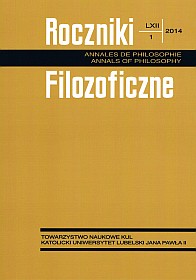Paul Thagard’s Demarcation Criteria
Abstract
In Paul Thagard’s article “Why Astrology Is a Pseudoscience”, we might find some demarcation criteria which are best used in determining whether certain fields with a lot of practitioners can be claimed to be pseudoscientific. Theory T for the pseudoscience club is if T has long been less progressive than its competitors and faces many more unsolved problems; and, adherents to T do not try to develop the theory to solve puzzles, do not attempt to evaluate T with respect to its alternatives, and are highly reserved and selective in seeking confirmation and falsification. Ten years later Thagard gave us new proposals. If T is a pseudoscience, then it is usually the case that (1) T is neither simple nor unified; the explanations, resources, (2) and predictions of T tend to be ad hoc, spurious, or ill-fitted to the rest of T; or, (3) adherents to T do not try to develop the theory to solve puzzles, do not attempt to evaluate T with respect to competitors, and (4) are highly reserved and selective in seeking confirmation and falsification.
In this article, Paul Thagard’s criteria of demarcation are examined and evaluated from the point of view of the history of astrology.
References
Amsterdamski Stefan: Między doświadczeniem a metafizyką, Warszawa: KiW 1973.
Ankerberg John, Weldon John: Astrology. Do the Heavens rule our destiny?, Eugene: Harvest House Publishers 1989.
Arroyo Stephen: Astrology, Psychology, and the Four Elements. An Energy Approach to Astrology and Its Use in the Counceling Arts, Sebastopol, CA: CRCS Publications 1975.
Bronk Andrzej: Filozofia i nauka: problem demarkacji, „Roczniki Filozoficzne” 43 (1995), z. 1, s. 181-236.
Culver Roger B., Ianna Philip A.: Astrology True or False? A Scientific Evaluation, New York: Prometheus Books 1988.
Culver Roger B., Ianna Philip A.: The Gemini Syndrome. A Scientific Evaluation of Astrology, New York: Prometheus Books 19842.
Currey Robert: U-turn in Carlson’s astrology test?, „Correlation” 27 (2011), nr 2, s. 7-33.
Curry Patrick: Prophecy and Power. Astrology in Early Modern England, Princeton: Princeton University Press 1989.
Dean Geoffrey, Kelly Ivan W.: Does Astrology Work? Astrology and Skepticism 1975-2000, [w:] Paul Kurtz (ed.), Skeptical Odysseys, Amherst, NY: Prometheus Books 2001, s. 191-207.
Ertel Suitbert: Appraisal of Shawn Carlson’s Renowned Astrology Tests, „Journal of Scientific Exploration” 23 (2009), nr 2, s. 125-137.
Feher Shoshanah: Who Looks to the Stars? Astrology and Its Constituency, „Journal for the Scientific Study of Religion” 31 (1992), nr 1, s. 88-93.
Jodkowski Kazimierz: Paradygmat i wspólnotowy charakter uprawiania nauki w ujęciu Thomasa S. Kuhna, „Annales UMCS”. Sectio I, Philosophia-Sociologia 8 (1983), s. 41-56.
Jodkowski Kazimierz: Wspólnoty uczonych, paradygmaty i rewolucje naukowe, Lublin: Wydawnictwo UMCS 1990.
Jóźwiak Wojciech: Wiedza nie całkiem tajemna, Białystok: Studio Astropsychologii 2004.
Laudan Larry: The Demise of the Demarcation Problem, [w:] Robert S. Cohen, Larry Laudan (eds.), Physics, Philosophy and Psychoanalysis: Essays in Honor of Adolf Grünbaum, Dordrecht: D. Reidel Publishing Co. 1983, s. 111-127.
Lemay Richard: Abu Masar and Latin Aristotelism in the Twelfth Century, Beirut 1962.
List Charles J.: Science and Pseudoscience: Criteria of Demarcation, „Reason Papers” 1982, nr 8, s. 49-58.
McGrew John, McFall Richard: A Scientific Inquiry into the Validity of Astrology, „Journal of Scientific Exploration” 4 (1990), nr 1, s. 75-83.
Muszyński Zbysław (red.): Z badań nad prawdą, nauką i poznaniem, Lublin: Wydawnictwo UMCS 1998 s. 63-79.
Paine Albert: Mark Twain, a Biography: The Personal and Literary Life of Samuel Langhorne Clemens, New York: Harper & Brothers 1912.
Piotrowski Piotr: Reguły astrologii tradycyjnej, Białystok: Studio Astropsychologii 2011.
Rawlins Dennis: The Neptune Conspiracy: British Astronomy’s Post-Discovery Discovery, „DIO. The Journal for Hysterical Astronomy” 2 (1992), nr 3, s. 115-142.
Roskal Zenon: Kontrowersyjność współczesnej astrologii prognostycznej (preliminaria), „Studia Leopoliensia” 2012, nr 5, s. 49-58.
Sady Wojciech: Dlaczego odkrycie promieni X przez Roentgena było naukowe?, „Przegląd Filozoficzny – Nowa Seria” 2004, nr 3, s. 7-20.
Sady Wojciech: O tym, co decyduje o naukowości badań przyrodniczych, „Studia Philosophica Wratislaviensia” 2011 nr 2 s. 15-31.
Sady Wojciech: Odkrywanie elektronu a pytanie o naturę badań naukowych, „Filozofia Nauki” 2011 nr 3(75), s. 71-105.
Thagard P.: Coherence, Truth, and the Development of Scientific Knowledge, „Philosophy of Science” 74 (2007), nr 1, s. 28-47.
Thagard Paul: Computational Philosophy of Science. Cambridge, MA: MIT Press 1988.
Thagard Paul: Why Astrology Is a Pseudoscience, „Proceedings of the Biennial Meeting of the Philosophy of Science Association Philosophy of Science Association” 1978, nr 1, s. 223-234.
Uslu Ferit: Ongoing Debate: How Can We Demarcate Science From Non-Science?, „Advances in Education Research” 19 (2013), s. 285-288.
Weres Leszek, Prinke Rafał: Mandala życia. Astrologia mity i rzeczywistość, Łódź: „Ravi” 1994.
Whitfield Peter: Astrology. A History, London: The British Library 2001.
Copyright (c) 2014 Roczniki Filozoficzne

This work is licensed under a Creative Commons Attribution-NonCommercial-NoDerivatives 4.0 International License.





